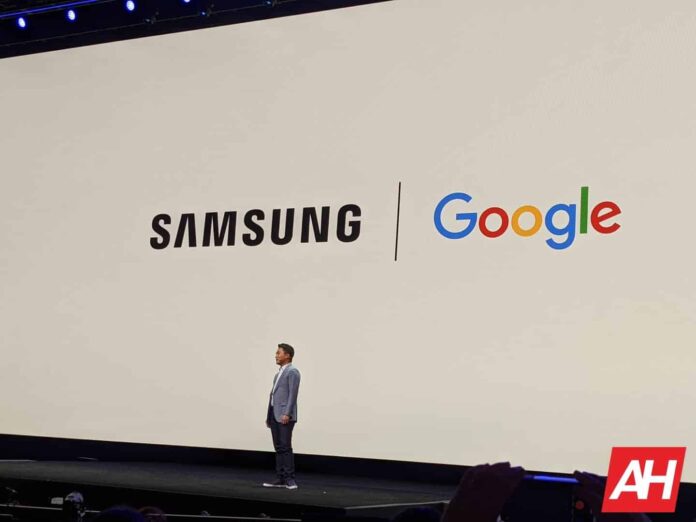[ad_1]
Google reportedly paid Samsung $8 billion over four years to make some of its apps default on Galaxy devices. The deal saw the Korean firm ship its Android smartphones and tablets with Google Assistant as the default voice assistant, Google Play Store as the default app store, and Google Search as the search engine.
Samsung took payment to promote Google apps over its alternatives
Samsung has been the world’s largest smartphone company for the past several years. Like most other Android OEMs, it ships phones with a custom Android skin. The Korean firm’s One UI is one of the most heavily customized Android-based software. Along with a UI redesign and new features, Galaxy devices ship with Samsung-made alternatives for some Google apps such as Messages, Play Store, Google Assistant, Chrome, Gboard, and more.
However, most of those apps merely exist as alternatives and aren’t defaulted. Instead, Samsung offers some Google apps as default options on its phones. It turns out the company took payment from the Android maker to do this. James Kolotouros, Vice President for Partnerships at Google, shared the details while testifying in the ongoing antitrust case filed by Epic Games, the makers of the popular battle royale video game Fortnite.
According to Kolotouros, Google has a plan to share Play Store revenue with Android OEMS in exchange for preinstalling the app on the homescreen of their products. The company even tried persuading Samsung to not offer the Galaxy Store as a standalone app store on Galaxy devices. As part of its Project Banyan, Google offered Samsung $200 million over four years to house the Galaxy Store within the Play Store rather than a separate app.
The plan was to use Google’s billing system for in-app purchases made via the Galaxy Store. However, the Korean firm didn’t accept the proposal. The firms later agreed on a $8 billion deal that would make Google Assistant, Play Store, and Search default options on Galaxy devices for four years. Google also planned to pay Samsung an additional $1 billion to pre-install the Play Store on the homescreen. However, it pulled back this request, likely because Samsung could offer the Galaxy Store next to it.
The Google executive defended the company’s stance
While Google struck a deal with Samsung, the company also planned to offer big sums to other Android manufacturers to keep rival services at bay. The company saw Amazon’s app store as a threat, among others, and devised a plan to encourage OEMs to promote the Play Store on their devices. It wanted to offer a cut of the Play Store revenue, Bloomberg reports.
Documents presented in court show that the company was willing to spend $2.9 billion across Search and Play in 2020, growing to $4.5 billion in 2023. This was to “secure platform protections for Search and Play and critical apps protections on more devices” from non-Samsung manufacturers. There was also a tiered plan offering up to 16 percent share of Play Store’s revenue and a 12 percent share of Search revenue depending on the size of the firm.
Google’s ultimate plan is to boost its business. As Kolotouros said, Google never barred Samsung from putting the Galaxy Store on the homescreen of its devices. The plans to include the Play Store on the homescreen were for its benefit but that doesn’t mean the Korean firm couldn’t include the Galaxy Store there. It paid companies to promote its products but never forced them to remove competing solutions from their devices.
Google CEO Sundar Pichai recently took a similar stance defending the company in the DOJ (Department of Justice) antitrust case. He said self-prioritizing isn’t wrong. It’s a way of doing business. Unfortunately, Google’s practices have made it difficult for smaller businesses to grow and compete against it. Whether these antitrust cases make the company scale back these business practices, time will tell. Pichai will testify in the Epic case later today.
[ad_2]
Source link
